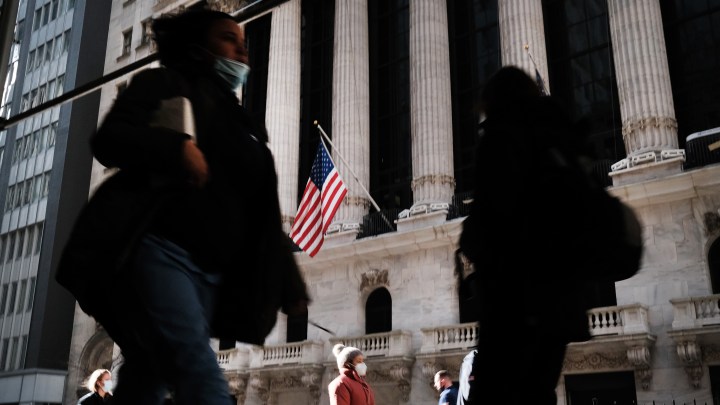
What household wealth does — and doesn’t — say about this economy
What household wealth does — and doesn’t — say about this economy

The Federal Reserve is set to release its quarterly snapshot of household wealth levels Thursday.
“Household wealth” does not mean “household income,” however. It means the net worth of things Americans own, including stocks and real estate.
During the pandemic, we’ve seen huge swings in household wealth linked to those assets. The wealthiest Americans may have already had them before the pandemic, and they’re betting that they’ll continue to appreciate.
But what’s in store for the rest of us and our household wealth?
In the pantheon of datasets generated by the Fed, household wealth hasn’t always received much attention. But former Fed economist Claudia Sahm said that’s changing, “because the economy is being so weird. If you look at employment, it’s weird. If you look at consumer pricing, it’s weird, right? You have to really try and put the pieces together and tell the story,” she said. “But none of us actually know exactly what the right story is.”
Going into the pandemic, household wealth was moving steadily higher, according to Mississippi State University finance professor Tom Miller.
He was surprised that, given the current boom in the housing market, stocks make up the majority of American household wealth — at nearly 30%.
“I would have thought real estate was a bigger chunk. But the stock market run-up since roughly 2016 has had a big impact on retirement funds,” Miller said. And he expects to see more of that growth.
Economist Sahm points out that for people without big portfolios, the last year has also been a time of wealth-building — just on a smaller scale.
The federal government’s historic pandemic stimulus assistance gave people more to spend and to save, said Martha Olney, an economics professor at University of California, Berkeley. But she warns that is a temporary change.
“Wealth is so unevenly distributed in this economy,” Olney said. “A lot of families having $2,000 in their savings account versus $0 in their savings account just isn’t going to move those numbers much at all.”
And if savings are in cash, that wealth is more likely to disappear if inflation heats up.
There’s a lot happening in the world. Through it all, Marketplace is here for you.
You rely on Marketplace to break down the world’s events and tell you how it affects you in a fact-based, approachable way. We rely on your financial support to keep making that possible.
Your donation today powers the independent journalism that you rely on. For just $5/month, you can help sustain Marketplace so we can keep reporting on the things that matter to you.

















